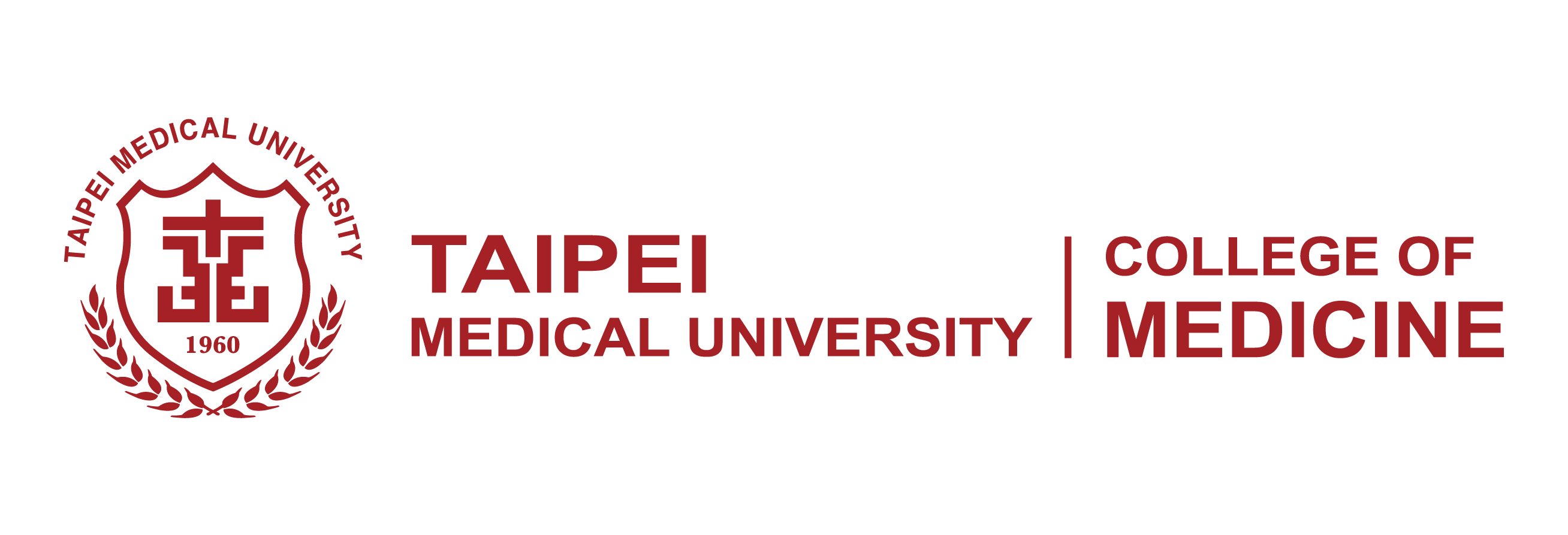Research | Departments
Research
Departments
Research | Departments
Research
Departments
Atrial fibrillation is a common cardiac arrhythmia seen in clinical practice. It can lead to impaired heart function and stroke. I have dedicated my research to exploring the pathophysiological mechanisms of atrial fibrillation. As the first scholar in the world, I successfully isolated atrial myocytes from the pulmonary veins and superior vena cava for electrophysiological studies, which were published in important cardiovascular journals (Circulation 2001; Circulation 2002; JACC 2002; Cardiovasc Res 2000). Additionally, my laboratory discovered electrophysiological differences between left atrial anterior and posterior wall myocytes. These studies not only enhanced our understanding of cardiac myocyte electrophysiology globally but also provided essential insights for antiarrhythmic drug research in atrial fibrillation.
Our research findings have had a decisive impact on the cellular pathophysiology of atrial fibrillation triggered by the pulmonary veins. I have been invited to present at numerous domestic and international conferences and have shared my results with the scientific community. The Ministry of Science and Technology has recognized my contributions through the Young Scholar Research Program and the Outstanding Scholar Development Program. I was honored with the 2012 Ding-Nung Award from the Taiwan Society of Cardiology.
Furthermore, my laboratory made a groundbreaking discovery regarding the role of epigenetic regulation in calcium ion homeostasis. Additionally, our investigations into cellular calcium ion regulation could potentially lead to novel treatments for arrhythmias and heart failure We have also explored the roles of fibrosis and adipocytes in arrhythmias and heart failure (Basic Res Cardiol 2012, Int J Cardiol 2013, 2014, Acta Physiologica 2017, J Mol Cell Cardiol 2018, Lab Invest 2019). These translational studies provide crucial medical insights.”

Email | yjchen@tmu.edu.tw
Profile | Academic Hub/Pure Experts
Professor (M.D., Ph.D.)
Cell and Molecular Biology, Cancer Biology, Cancer Stem Cells, Cancer Molecular Medicine, Pancreatic Cancer, Breast Cancer, Cancer Treatment Resistance
Laboratory of Arrythmia and Cellular Electrophysiology
“Professor Yi-Jen Chen obtained his Ph.D. from the Institute of Clinical Research at National Yang-Ming University in 2002. Since 2016, he has held the position of Professor at the Graduate Institute of Clinical Medicine within the College of Medicine at Taipei Medical University (TMU).
Associate Professor in the Department of Internal Medicine at the School of Medicine, Taipei Medical University
Associate Professor at the Graduate Institute of Clinical Medicine at Taipei Medical University
Chief of the Division of Cardiovascular Medicine at Wan Fang Hospital, Taipei Medical University
Director of the Graduate Institute of Clinical Medicine at Taipei Medical University
–
–
Professor
Associate Professor
Assistant Professor
Ph.D student
Ph.D student
Postdoctoral Researcher
Lee TW, Lee TI, Lin YK, Chen YC, Kao YH, Chen YJ*.
Effect of antidiabetic drugs on the risk of atrial fibrillation: mechanistic insights from clinical evidence and translational studies.
Cell Mol Life Sci. 2021 Feb;78(3):923-934.
Abstract
Diabetes mellitus (DM) is an independent risk factor for atrial fibrillation (AF), which is the most common sustained arrhythmia and is associated with substantial morbidity and mortality. Advanced glycation end product and its receptor activation, cardiac energy dysmetabolism, structural and electrical remodeling, and autonomic dysfunction are implicated in AF pathophysiology in diabetic hearts. Antidiabetic drugs have been demonstrated to possess therapeutic potential for AF. However, clinical investigations of AF in patients with DM have been scant and inconclusive. This article provides a comprehensive review of research findings on the association between DM and AF and critically analyzes the effect of different pharmacological classes of antidiabetic drugs on AF.
Chan CS, Lin YS, Lin YK, Chen YC, Kao YH, Hsu CC, Chen SA, Chen YJ*.
Atrial arrhythmogenesis in a rabbit model of chronic obstructive pulmonary disease.
Transl Res. 2020 Sep;223:25-39.
Abstract
Chronic obstructive pulmonary disease (COPD) increases the risk of atrial fibrillation (AF), however, its arrhythmogenic mechanisms are unclear. This study investigated the effects of COPD on AF triggers (pulmonary veins, PVs) and substrates (atria), and their potential underlying mechanisms. Electrocardiographic, echocardiographic, and biochemical studies were conducted in control rabbits and rabbits with human leukocyte elastase (0.3 unit/kg)-induced COPD. Conventional microelectrode, Western blotting, and histological examinations were performed on PV, left atrium (LA), right atrium, and sinoatrial node (SAN) preparations from control rabbits and those with COPD. The rabbits with COPD had a higher incidence of atrial premature complexes, PV burst firing and delayed afterdepolarizations, higher sympathetic activity, larger LA, and faster PV spontaneous activity than did the control rabbits; but they exhibited a slower SAN beating rate. The LA of the rabbits with COPD had a shorter action potential duration and longer tachyarrhythmia induced by tachypacing (20 Hz) and isoproterenol (1 μM). Additionally, the rabbits with COPD had higher fibrosis in the PVs, LA, and SAN. H89 (10 μM), KN93 (1 μM), and KB-R7943 (10 μM) significantly suppressed burst firing and delayed afterdepolarizations in the PVs of the rabbits with COPD. Moreover, compared with the control rabbits, those with COPD had lower expression levels of the β1 adrenergic receptor, Cav 1.2, and Na+/Ca2+ exchanger in the PVs; Cav 1.2 in the LA; and hyperpolarization-activated cyclic nucleotide-gated K+ channel 4 in the SAN. COPD increases atrial arrhythmogenesis by modulating the distinctive electrophysiological characteristics of the PVs, LA, and SAN.
Lin YK, Chen YC, Chen JH, Chen SA, Chen YJ*.
Adipocytes modulate the electrophysiology of atrial myocytes: implications in obesity-induced atrial fibrillation.
Basic Res Cardiol. 2012 Sep;107(5):293.
Abstract
Obesity is an important risk factor for atrial fibrillation (AF). Increased epicardial adipose tissue in obesity can enhance inflammation and plays an important role in the pathophysiology of AF. However, it is not clear whether epicardial adipocytes directly modulate the electrophysiological characteristics of atrial myocytes. Wholecell patch clamp was used to record the action potentials (APs) and ionic currents in isolated rabbit left atrium (LA) myocytes incubated with and without (control) isolated adipocytes from epicardial, retrosternal, or abdominal adipose tissues, or adipocytes-conditioned supernatant for 2-4 h. Compared to control LA myocytes (n = 22), LA myocytes incubated with epicardial (n = 17), retrosternal (n = 18), or abdominal adipocytes (n = 22) had longer (80 ± 3, 109 ± 6, 109 ± 6, and 110 ± 7 ms, p\0.001) 90 % AP durations (APD90). LA myocytes incubated with epicardial adipocytes had a more-positive resting membrane potential (RMP) than control LA myocytes (-57 ± 1 mV vs. -63.4 ± 1.4 mV, p\0.05). However, LA myocytes (n = 32) incubated with supernatant had longer APD90 (93 ± 3 ms, p\0.05), but similar RMP values (-62 ± 2 mV, p[0.05) in comparison to control myocytes. Epicardial adipocyte-incubated LA myocytes had larger late sodium currents, L-type calcium currents, and transient outward potassium currents, but smaller delayed rectifier potassium and inward rectifier potassium currents than control LA myocytes. Moreover, isoproterenol (10 nM) induced a higher incidence (67 vs. 22 %, p\0.05) of triggered beats in adipocytes-incubated LA myocytes (n = 12) than in control LA myocytes (n = 9). In conclusion, adipocytes can directly modulate the electrophysiological properties and ion currents, causing higher arrhythmogenesis in LA myocytes.
Chen YC, Chen SA, Chen YJ*, Chang MS, Chan P, Lin CI.
Effects of thyroid hormone on the arrhythmogenic activity of pulmonary vein cardiomyocytes.
Basic Res Cardiol. 2012 Sep;107(5):293.
Abstract
OBJECTIVES: This study was conducted to investigate the effects of thyroid hormone on the electrophysiological characteristics of pulmonary vein (PV) cardiomyocytes. BACKGROUND: Hyperthyroidism is an important etiology of paroxysmal atrial fibrillation (AF). Pulmonary veins are known to initiate paroxysmal AF. METHODS: The action potential and ionic currents were investigated in single rabbit PV and atrial cardiomyocytes with (hyperthyroid) and without (control) incubation of L-triiodothyronine using the whole-cell clamp technique. RESULTS: Compared with the control cardiomyocytes, hyperthyroid PV and atrial cardiomyocytes had shorter action potential duration. Hyperthyroid PV cardiomyocytes had faster beating rates (1.82 ± 0.13 Hz vs. 1.03 ± 0.15 Hz, p<0.005) and a higher incidence of delayed afterdepolarization (beating: 92% vs. 6%, p<0.0001; non-beating: 45% vs. 3%, p<0.005). However, only hyperthyroid PV beating cardiomyocytes had a higher incidence of early afterdepolarization (46% vs. 0%, p<0.0001). The ionic current experiments showed that hyperthyroid PV beating cardiomyocytes had larger densities of overall slow inward (2.72 ± 0.21 pA/pF vs. 2.07 ± 0.19 pA/pF, p<0.05), overall transient outward (1.39 ± 0.21 pA/pF vs. 0.48 ± 0.08 pA/pF, p<0.001) and steady state outward currents (0.78 ± 0.06 pA/pF vs. 0.58 ± 0.04 pA/pF, p<0.05) on depolarization and larger transient inward (0.021 ± 0.004 pA/pF vs. 0.005 ± 0.001 pA/pF, p<0.001) on repolarization. By contrast, the hyperthyroid PV non-beating cardiomyocytes had larger densities of overall transient outward (1.01 ± 0.14 pA/pF vs. 0.37 ± 0.07 pA/pF, p<0.001), steady state outward (0.61 ± 0.06 pA/pF vs. 0.44 ± 0.04 pA/pF, p<0.05) and transient inward currents (0.011 ± 0.002 pA/pF vs. 0.003 ± 0.001 pA/pF, p<0.05). C0NCLUSIONS: Thyroid hormone changes the electrophysiological activity of the PV cardiomyocytes. Increased automaticity and enhanced triggered activity may increase the arrhythmogenic activity of PVs in hyperthyroidism.
Chen YJ, Chen SA, Chen YC, Yeh HI, Chan P, Chang MS, Lin CI.
Effects of rapid atrial pacing on the arrhythmogenic activity of single cardiomyocytes from pulmonary veins: implication in initiation of atrial fibrillation.
Circulation. 2001 Dec 4;104(23):2849-54.
Abstract
Background – Pulmonary veins (PVs) are important sources of paroxysmal atrial fibrillation. Long-term rapid atrial pacing (RAP) changes atrial electrophysiology and facilitates the maintenance of atrial fibrillation. It is not clear whether RAP alters the arrhythmogenic activity of PVs. The purpose of this study was to isolate single PV cardiomyocytes from control and RAP dogs and evaluate their electrophysiological characteristics. Methods and Results – The action potential and ionic currents were investigated in PV cardiomyocytes from control and long-term (6 to 8 weeks) RAP (780 bpm) dogs by use of the whole-cell clamp technique. Dissociation of PVs yielded rod-shaped single cardiomyocytes without (n=91, 60%) or with (n=60, 40%) pacemaker activity. Compared with the control group, the RAP dog PV cardiomyocytes had faster beating rates (0.86±0.28 versus 0.45±0.07 Hz, P<0.05) and shorter action potential duration. The RAP dog PV cardiomyocytes with pacemaker activity have a higher incidence of delayed (59% versus 7%, P<0.001) or early (24% versus 0%, P<0.005) afterdepolarization. The RAP dog PV cardiomyocytes with pacemaker activity had smaller slow inward and transient outward but larger transient inward (0.017±0.004 versus 0.009±0.002 pA/pF, P<0.05) and pacemaker (0.111±0.019 versus 0.028±0.008 pA/pF, P<0.001) currents. The RAP dog PV cardiomyocytes without pacemaker activity had only smaller slow inward and transient outward and larger pacemaker currents. Conclusions – PVs contain multiple cardiomyocytes with distinct electrophysiological characteristics. RAP changes the electrophysiological characteristics and arrhythmogenic activity of PVs.







 Total Users : 310340
Total Users : 310340
 Kuan-Chou Chen
Kuan-Chou Chen 